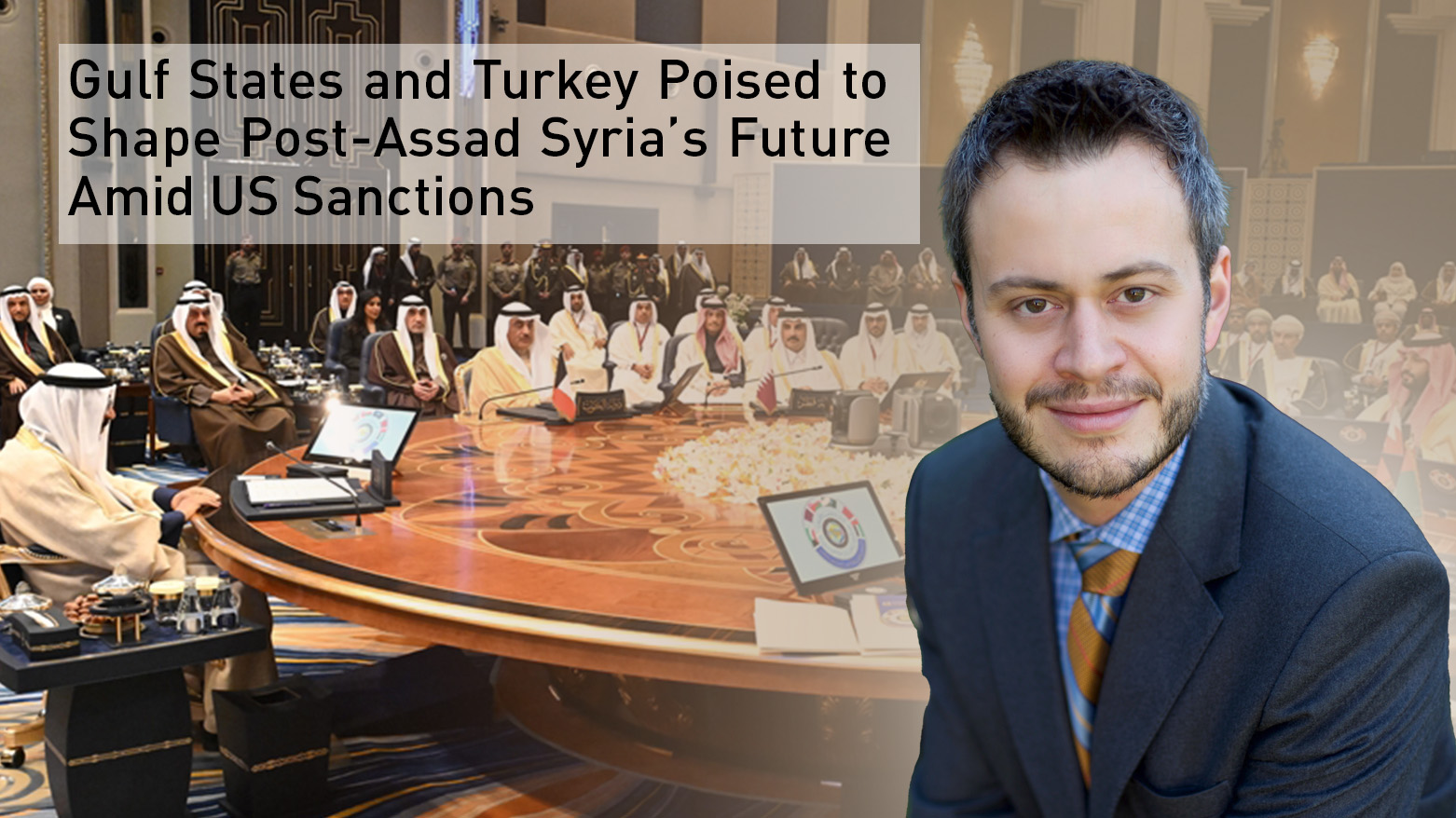Gulf States and Turkey Poised to Shape Post-Assad Syria’s Future Amid US Sanctions
"Turkey lacks the resources to finance Syria’s reconstruction. Therefore, Ankara recognizes the necessity of collaborating with GCC states,” Giorgio Cafiero

ERBIL (Kurdistan24) – The longer-term geopolitical ramifications of Hayat Tahrir al-Sham (HTS) and other armed groups overthrowing Bashar al-Assad’s regime in December have yet to be fully realized. Yet, a little more than two months into Syria’s post-Ba’athist period, Gulf Cooperation Council (GCC) members and Turkey have, at least so far, emerged as the biggest external winners, according to a report written by Giorgio Cafiero, the CEO of Gulf State Analytics, an Assistant Professor at Georgetown University, and a Fellow at the American Security Project.
Cafiero explains that "the Gulf Arab monarchies and Turkey are playing important diplomatic roles as legitimizers of the HTS-led government in Damascus, and they are positioned to help war-torn Syria with reconstruction and redevelopment." He adds that while Turkish construction, transport, and manufacturing companies seem set to profit from the largest projects in Syria's rebuilding, "Turkey lacks the resources to finance Syria’s reconstruction. Therefore, Ankara recognizes the necessity of collaborating with GCC states, which can finance much of the reconstruction efforts."
"The UAE stands out for its infrastructure development expertise, which can do much to help Syria rebuild its decimated cities, revive its shattered economy, and facilitate new trade relationships with countries worldwide," Cafiero highlights.
Stability in the Neighborhood
Despite the challenges and enormous costs of playing a lead role in Syria’s reconstruction, Gulf Arab states have their own interests in taking on this burden. Cafiero notes, "Heavily focused on their own economic development and diversification through ambitious agendas such as Saudi Arabia’s Vision 2030, the Gulf Arab monarchies want stability on the Arabian Peninsula, in the Gulf, and throughout the wider region."
"As the post-October 7 conflicts in Gaza and Lebanon demonstrated, chaos in any part of the Middle East is often contagious," Cafiero warns. "Gulf Arab states do not want state collapse in Syria, which could create dangerous power vacuums or fuel new conflicts in Syria that would have the potential to spill into the Gulf."
Cafiero emphasizes that Gulf Arab monarchies are not acting out of charity. "These oil- and gas-rich countries will invest in Syria’s reconstruction to promote stability, secure large economic returns, and influence Damascus geopolitically," he states. "Channeling billions of dollars into Syria’s redevelopment will ensure that the GCC states gain higher levels of clout in the war-torn country."
Stumbling Block of US Sanctions
Cafiero acknowledges that despite their ambitions, Gulf Arab countries remain hesitant to invest in Syria's reconstruction due to stringent US and Western sanctions. "The 2019 Caesar Syria Civilian Protection Act subjects entities worldwide, including Gulf- and Turkey-based financial institutions, to the long arm of US sanctions if they do business in any part of government-controlled Syria," he explains.
With President Donald Trump not even one month into his second term, Cafiero notes that "there are countless unknown factors surrounding the new American administration’s foreign policy vis-à-vis Syria."
"Unless and until the Trump administration removes the Caesar Act, or at least significantly eases its enforcement, Gulf Arab leaders and their lobbies in Washington will likely try to persuade the White House that the time has come for removing all sanctions on Syria," Cafiero states. He adds that "Saudi officials have already been in an active dialogue with the US and the EU about supporting Syria’s political transition, economic redevelopment, and reconstruction through the lifting of Western sanctions."
Regarding potential Russian involvement, Cafiero points out, "Despite lacking the resources to finance Syria’s reconstruction, Moscow is offering to assist with the country’s redevelopment. This ability to help is perhaps a bargaining chip that Russia can leverage while engaging in 'constructive and practical' talks with Syria's new government."
Ultimately, Cafiero warns, "Without a lifting of the sanctions imposed by Western countries, chiefly the US, efforts to rebuild Syria will be hindered, and the prospects for economic regrowth and effective governance will dim."
